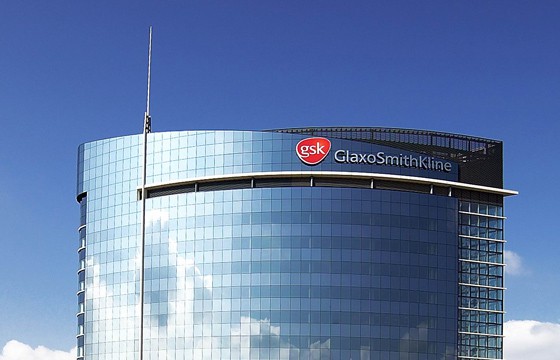
GlaxoSmithKline’s (GSK) business in China continued to contract in the fourth quarter in the wake of the Chinese corruption scandal, but the company managed 2 per cent growth in overall sales that beat analyst expectations.
The pharma major made an operating profit of £2.44bn ($3.98bn) in the quarter – up 36 per cent – on turnover of £6.91bn. Moreover, 2013 marked a return to sales growth after two years of declines, edging up 1 per cent to £26.51bn.
Chief executive Sir Andrew Witty said the 2013 results met its own guidance and that the group is poised to enter a new growth phase on the back of five new product approvals during the year.
Green lights for respiratory products Breo (fluticasone and vilanterol) and Anoro (umeclidinium and vilanterol); melanoma treatments Tafinlar (dabrafenib) and Mekinist (trametinib); and Tivicay (dolutegravir) for HIV – along with an expected approval for diabetes therapy albiglutide in the coming months – should help boost 2014 revenues by another 2 per cent, he said.
That prediction disappointed some analysts, although it is thought to be a conservative estimate based on potential generic competition to older products such as cardiovascular drug Lovaza (omega-3-acid ethyl esters), which dipped 5 per cent to £159m in the fourth quarter.
For the full-year, GSK’s top-selling respiratory drug Advair (fluticasone and salmeterol) gained 4 per cent to reach £5.27bn, but is now the only product in its portfolio with sales above the $1bn blockbuster threshold and is already facing generic competition in some European markets.
Other gainers included platelet-booster Promacta (eltrombopag) – up 46 per cent to £186m in 2013 – and lupus treatment Benlysta (belimumab), which more than doubled to £146m.
As expected China continued to put a damper on sales, with another 29 per cent decline in the fourth quarter following a fall of almost two-thirds in the previous three months, but the slower pace of decline led analysts to suggest that a feared unofficial ban on sales of GSK products in China had not materialised.
The company continues to face allegations in the country that employees bribed doctors and health officials to boost product sales.
Sir Andrew was understandably loth to dwell on the disappointing performance in China – considering GSK’s rivals such as AstraZeneca are enjoying double-digit gains in the country – and focused on GSK’s pipeline which has around 40 candidates in phase II and III development and six due to generate pivotal trial data in 2014 and 2015.
“Overall, GSK accounted for 19 per cent of FDA new drug approvals during 2013 and since 2009 we have achieved more NME [New Molecular Entity] approvals in the US than any other company,” he pointed out. The company’s internal rate of return on R&D was 13 per cent last year, up from 12 percent in 2012.




